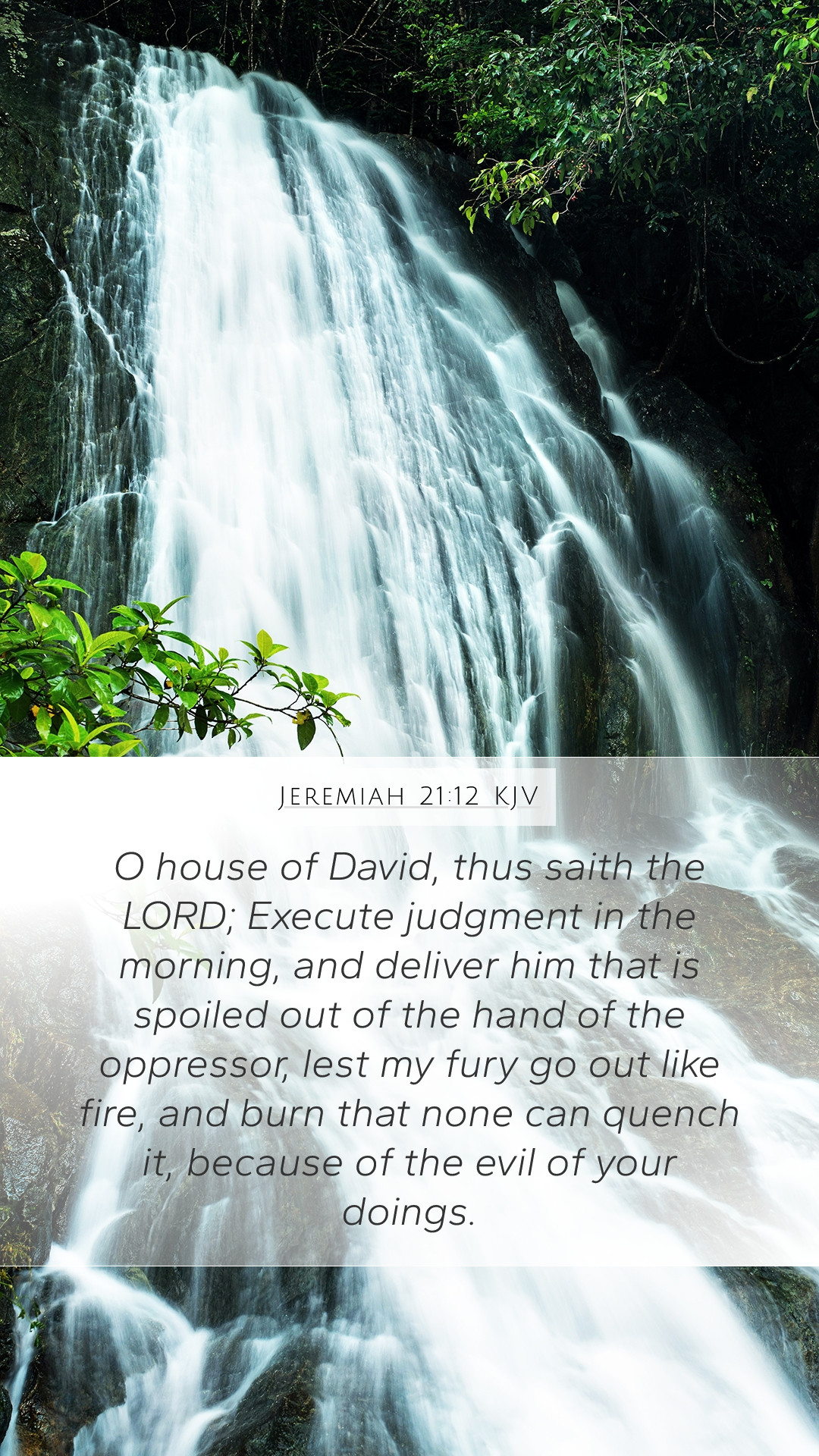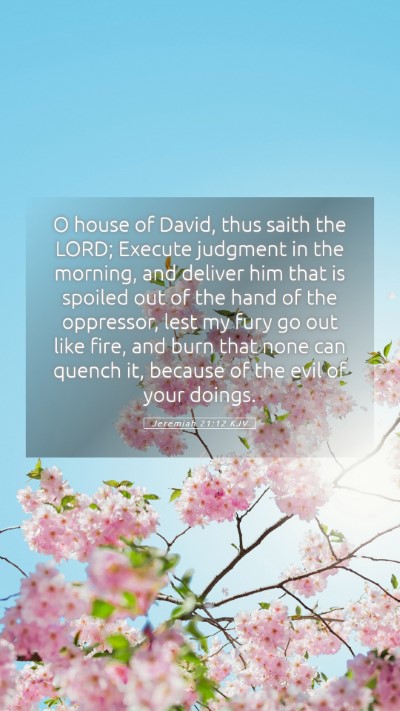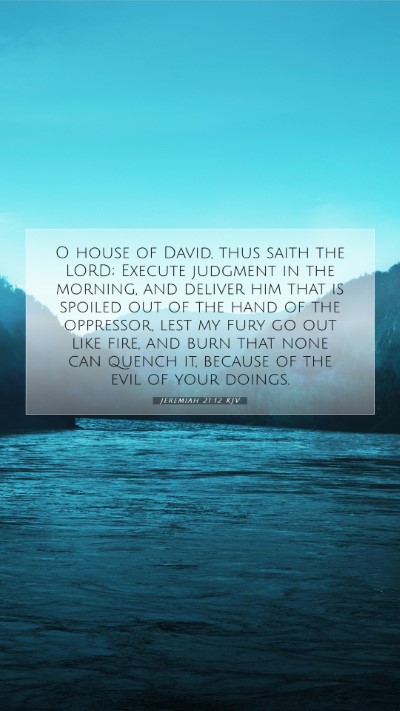Understanding Jeremiah 21:12
Jeremiah 21:12 states, "O house of David, thus says the Lord: Execute judgment in the morning, and deliver him who is plundered out of the hand of the oppressor, lest My fury go forth like fire and burn so that no one can quench it, because of the evil of your doings."
This verse is a call to justice, accountability, and the urgency of divine judgment. In this analysis, we will explore the profound meanings behind the words of Jeremiah by combining insights from various public domain commentaries, particularly those by Matthew Henry, Albert Barnes, and Adam Clarke.
Bible Verse Meaning
At its core, Jeremiah 21:12 emphasizes the necessity for the rulers of Judah, particularly referring to the house of David, to execute justice and maintain righteousness. The phrase "execute judgment in the morning" signifies both the timing and the importance of acting promptly against injustice. This reflects God's expectation for His people to advocate for the oppressed and to conduct their affairs with integrity.
Commentary Insights
- Matthew Henry's Commentary: Henry notes that God addresses the house of David, reminding them of their duty to uphold justice. The "morning" symbolizes a new beginning and the urgency required in dealing with evil and oppression. He reflects on how neglecting justice can lead to God's judgment, depicted as a fire that cannot be quenched.
- Albert Barnes' Commentary: Barnes elaborates on the responsibility of leaders, asserting that they are to deliver the oppressed from their oppressors. He emphasizes the seriousness of God's warning, as it indicates the dire consequences of failing to heed His command for justice, with "My fury" invoking the concept of divine wrath against unrepented sin.
- Adam Clarke's Commentary: Clarke provides historical context by discussing the prevailing injustices in Judah at the time of Jeremiah's proclamation. He underlines that the verse serves not only as a warning but also as an invitation to mercy and repentance for the leaders who had failed their people, indicating that their actions directly impacted God's favor upon them.
Key Themes
Jeremiah 21:12 encapsulates several key themes relevant to understanding its message:
- Justice: The verse underscores the importance of justice in leadership, a recurring theme throughout Scripture that demands accountability from those in power.
- Divine Warning: The urgency expressed in the verse serves as a divine warning of the consequences of failing to act justly and righteously.
- Hope for the Oppressed: There is a sense of hope embedded in the call for justice, suggesting that God cares for the plundered and is attentive to their suffering.
- Repentance: Though highlighting God's wrath, the call to justice also implies an opportunity for leaders to repent and change their ways, potentially averting disaster.
Application of the Verse
In applying this verse to our daily lives and the contexts of what we see today, the message is clear:
- Personal Responsibility: Each individual has a role to play in standing against injustice and being a voice for the voiceless.
- Community Engagement: Engaging in social justice and being part of community efforts to uplift those who are oppressed resonates with the heart of this Scripture.
- Spiritual Reflection: Reflecting on our own actions and how we can contribute to a more just society aligns with the biblical narrative of living righteously.
Related Biblical Cross References
This verse connects with several other Scriptures that amplify its themes of justice and divine accountability:
- Isaiah 1:17: "Learn to do good; seek justice, correct oppression; bring justice to the fatherless, plead the widow's cause."
- Micah 6:8: "He has told you, O man, what is good; and what does the Lord require of you but to do justice, and to love kindness, and to walk humbly with your God?"
- Proverbs 31:8-9: "Open your mouth for the mute, for the rights of all who are destitute. Open your mouth, judge righteously, defend the rights of the poor and needy."
Conclusion
Jeremiah 21:12 serves as a powerful reminder of the roles and responsibilities that come with leadership and the imperative nature of justice in society. It calls not only to the leaders of ancient Judah but to all of us today to practice righteousness, act against oppression, and reflect on God's judgment with a heart of repentance. As we delve deeper into understanding Scripture and the meaning of Bible verses, let this verse encourage a commitment to justice and mercy in every area of our lives.


